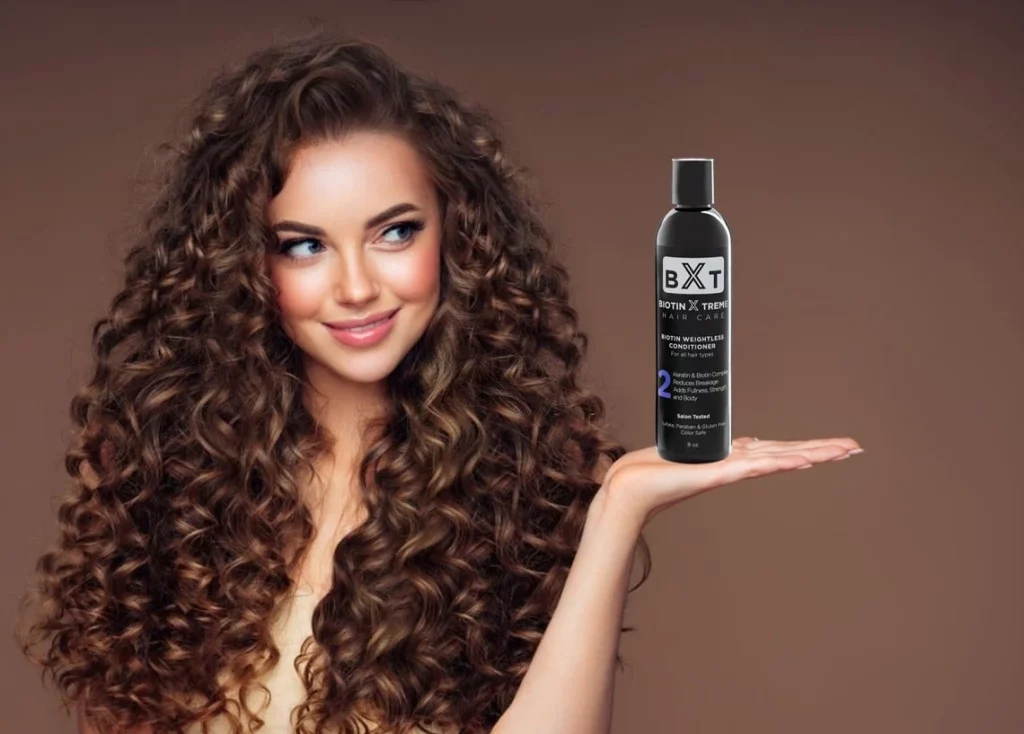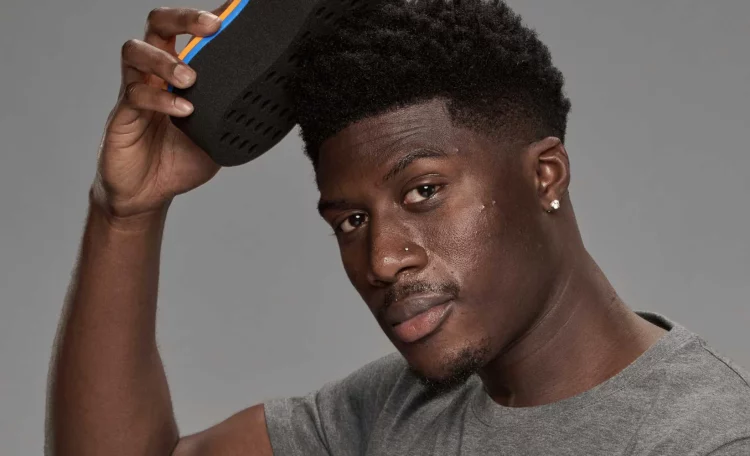Introduction: Curly Hair Care and Washing Frequency
Curly hair, with its unique texture and structure, requires special care compared to straight or wavy hair. One of the most debated topics in curly hair care is the frequency of washing. While straight hair may seem to thrive with daily washes, curly hair often behaves differently. Determining the optimal frequency for washing curly hair is crucial for maintaining its health, preventing dryness, and promoting a vibrant, bouncy look. But is it better to wash curly hair daily or weekly? The answer isn’t straightforward—it depends on several factors including hair type, lifestyle, and individual needs. In this article, we’ll explore the importance of washing curly hair at the right frequency, discuss the benefits of washing less frequently, and guide you through the best practices for curly hair care.
Benefits of Washing Less Frequently: Retaining Natural Oils and Moisture
Curly hair tends to be drier than other hair types because the natural oils produced by the scalp have a harder time traveling down the twists and turns of the hair shaft. Washing curly hair too often can strip it of these essential oils, leading to dryness, frizz, and breakage. By washing less frequently, you allow your natural oils to do their job, keeping your hair moisturized, protected, and healthy.
- Preserving Natural Oils: Curly hair is more prone to dryness than straight hair due to its structure. The coils and spirals make it difficult for sebum, the scalp’s natural oil, to travel down the entire length of the hair. Washing curly hair less often helps retain these oils, which are vital for maintaining hydration, minimizing frizz, and adding natural shine.
- Avoiding Over-Drying: Frequent washing with harsh shampoos can dry out curly hair, leaving it dull and unmanageable. Most shampoos, especially those containing sulfates, can strip the scalp of natural oils. Over time, this can lead to brittle curls that break easily and lack elasticity. By washing your curls less often, you give your hair time to replenish and hydrate itself naturally.
- Reducing Frizz: Curly hair tends to be more susceptible to frizz, which is exacerbated by frequent washing and exposure to hot water. Frizz occurs when the hair cuticle is raised, allowing moisture from the air to enter and swell the strands. Washing less frequently gives your curls the time they need to seal the cuticle, reducing the appearance of frizz and enhancing the overall texture.
- Better Hair Health: When you reduce the number of washes, you decrease the risk of irritating the scalp. Over-washing can lead to scalp dryness, itchiness, and inflammation. Allowing the scalp to breathe and maintain its natural moisture balance helps to avoid these problems and supports healthy hair growth.

Curly Hair Products: How They Differ from Straight Hair Products
One of the most important aspects of curly hair care is selecting the right products. Unlike straight hair, curly hair requires products that cater to its unique needs. From shampoos and conditioners to styling creams and gels, curly hair products are specifically designed to hydrate, define, and protect curls without weighing them down or causing damage.
- Shampoos for Curly Hair: Traditional shampoos often contain sulfates that can strip curly hair of its natural oils, leaving it dry and frizzy. Sulfate-free shampoos, on the other hand, are gentler and help to retain moisture while still cleansing the scalp and hair. Look for shampoos that contain moisturizing ingredients such as aloe vera, shea butter, or glycerin, which are particularly beneficial for curly hair. Clarifying shampoos should only be used occasionally to remove buildup from products, as overuse can cause dryness.
- Conditioners and Deep Conditioners: Conditioners designed for curly hair are typically richer and thicker than those made for straight hair. They contain ingredients that hydrate, soften, and detangle curls. In addition to regular conditioner, deep conditioning treatments are essential for curly hair, especially for those with dry or color-treated curls. Deep conditioners provide intense moisture and help restore the elasticity and health of your curls.
- Leave-In Conditioners: Leave-in conditioners are a must for curly hair as they help lock in moisture and prevent frizz. These products provide long-lasting hydration and help curls maintain their shape without the need for heavy styling products. Look for leave-ins with a lightweight formula to avoid weighing down your curls.
- Styling Creams and Gels: Curly hair can sometimes require styling products to help define and hold the curls in place. Look for creams or gels that provide medium to strong hold without causing crunchiness. Curly hair products should offer curl definition, reduce frizz, and provide hold, but they should never leave the hair feeling stiff or heavy. Ingredients like flaxseed oil, coconut oil, and shea butter are great for providing definition and moisture.
- Oils and Serums: Hair oils and serums can be used sparingly to add shine and moisture to curly hair. They also help smooth the hair cuticle, reducing frizz and enhancing the natural curl pattern. Argan oil, jojoba oil, and marula oil are some of the best oils for curly hair due to their light texture and nourishing properties.
Washing Techniques: Use of Co-Washing, Gentle Shampoos
How you wash your curly hair is just as important as how often you do it. Using the right washing techniques ensures that your hair stays clean without being stripped of its natural oils. Co-washing and using gentle, moisturizing shampoos are two of the best techniques for maintaining healthy curls.
- Co-Washing (Conditioner Washing): Co-washing, or using conditioner to cleanse the scalp and hair instead of shampoo, is a popular technique among those with curly hair. Co-washing is especially beneficial for dry or textured curls, as it removes dirt and buildup without stripping moisture. Choose a conditioner that is free from silicones, sulfates, and parabens, as these ingredients can still cause dryness and buildup on curly hair.
- Gentle Shampoos: When using shampoo, opt for a gentle, sulfate-free formula that won’t strip your hair of its natural oils. Look for shampoos that have hydrating ingredients and are specifically designed for curly hair. These shampoos cleanse the scalp without causing frizz or dryness, leaving your curls soft and defined. It’s also a good idea to rinse with cool water after shampooing to help seal the cuticle and lock in moisture.
- Shampooing Techniques: When washing curly hair, focus on gently massaging the scalp with your fingertips rather than scrubbing vigorously. This helps stimulate blood circulation and removes buildup without causing unnecessary friction, which can lead to frizz and breakage. Avoid shampooing the ends of your curls, as they tend to be drier and need less cleansing. Instead, focus on the scalp and let the lather gently clean the hair as it rinses down the strands.
- Avoiding Over-Washing: As mentioned earlier, over-washing curly hair can lead to dryness and frizz. Stick to washing your curly hair no more than 2-3 times per week, depending on your hair type and lifestyle. On non-wash days, you can refresh your curls with a light spritz of water or a leave-in conditioner to keep them hydrated and defined.
Conclusion: How Often Should You Wash Curly Hair?
The optimal washing frequency for curly hair depends on your hair type, lifestyle, and personal preferences. However, the general consensus is that washing curly hair daily is unnecessary and can lead to dryness, frizz, and breakage. Instead, aim to wash your hair 2-3 times a week, and on the days in between, consider co-washing or using a leave-in conditioner to refresh your curls.
By washing less frequently and using the right products and techniques, you’ll be able to retain your hair’s natural moisture, preserve your curl pattern, and minimize damage. Remember that curly hair requires moisture, definition, and protection—so choose moisturizing shampoos, deep conditioners, and styling products that cater to your unique needs. With the right care, your curls can thrive, remaining healthy, bouncy, and beautiful.












































